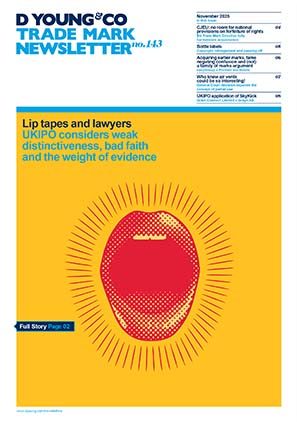Climate-neutral Katjes fruit gums? German Court of Justice sets strict requirements for climate-neutral claims
Environmental policy and a sustainable image are becoming increasingly important for companies. Companies therefore often advertise their products as environmentally friendly, or in particular “climate neutral”.
However, when advertising with such a vague term (which includes both the avoidance of CO² emissions and CO² compensation) it must be explained in the advert itself which specific meaning is relevant, the German Federal Court of Justice (BGH) has now ruled in the case of sweets manufacturer Katjes.
In light of conflicting lower court decisions in Germany, the decision on the advertising of Katjes’ fruit gummies with the claim “climate-neutral” was eagerly awaited. In its decision (I ZR 98/23) of 27 June 2024 the BGH set out strict requirements companies must meet to promote their products with the term “climate neutral”.
Since the term is too vague it requires specific and clearly visible information in the advert itself on how the claimed climate neutrality is achieved and what measures have been taken by the advertiser to verify the claim. The BGH decided both that reduction measures take precedence over mere compensation of CO² emissions, which needs to be made transparent to the consumer and that the risk of consumer deception is particularly high when it comes to so called “green claims”.
Background
In July 2023, the Higher Regional Court of Düsseldorf (OLG Düsseldorf) was asked to define the requirements for advertising with climate-neutrality claims in two proceedings. While the claim by the sweets company Katjes was deemed compliant, a jam manufacturer was found to be in violation of German Unfair Competition Law.
In its decisions, the OLG Düsseldorf explained that climate neutrality is not in itself a false claim and thus misleading advertising. However, the advertiser is obliged to provide information on how the climate neutrality of the advertised product is achieved and what compensation measures are in place, whether by the product’s own savings (reduction of greenhouse gas emissions in the production process) or compensation measures (such as purchasing CO² certificates or supporting third-party climate projects).
As neither the print advertisement nor the product packaging itself provided any explanatory information, the advertising of the jam manufacturer was deemed insufficient.
In contrast, the claim of climate neutrality in both the advertisement and the packaging of Katjes’ fruit gummies was accompanied by a QR code and reference to the website of its certification partner, which met the obligation to provide supporting information.
The Wettbewerbszentrale (Centre for Combating Unfair Competition), claimant in both cases, appealed the latter decision.
BGH sets strict requirements
On appeal, the BGH determined Katjes’ advertising to be misleading and overturned the ruling of the OLG Düsseldorf.
The BGH is clear that environmental claims are of significant importance in a consumer’s purchasing decision. Therefore, the same strict standards have to be applied to environmental adverts as for health-related adverts in terms of their accuracy, unambiguity and clarity.
In both cases the risk of being misled is particularly high, requiring an increased need to inform and protect the public.
The term “climate neutral” is a vague term (as it can relate to reduction or compensation of CO² emissions, which are not equivalent measures) and therefore clarification is required in the advert itself as to its meaning to avoid deception; mere reference to further information being available either via a QR code or a link is inadequate information.
The BGH is clear that reduction of CO² emissions takes precedence over compensation measures.
Outlook
The BGH’s long awaited decision will significantly impact advertising with the term “climate-neutral” in Germany, but will also affect other environmental-friendly claims, which may be deemed to be unclear.
The practice of referring to a website for further information due to spatial restrictions, as the OLG Düsseldorf deemed sufficient, will no longer be possible. Instead, all relevant information must be provided in the advert or on the product packaging. The BGH is clear and stricter than most of the Higher Regional courts in various cases, and in particular than the OLG Düsseldorf as previous instance.
This judgment is in line with the EU’s increased efforts to impose strict requirements for companies that make environmental claims (green claims) in their adverts to avoid claims that may mislead or deceive EU consumers. One of the instruments is the Green Claims Directive, which was introduced by the EU Commission in March 2023, and recently adopted by the EU Council, but is still in the legislative process. The directive includes the prohibition of environmental advertising claims (green claims) and labels that may mislead or deceive EU consumers by establishing several minimum criteria for transparency and credibility.
Companies will have to obtain approval of their green-marketing claims from an independent verifier before they can be used in advertising.
Another is the recently adopted Directive to empower consumers for environmental change through better protection against unfair practices and better information, which has to be transposed by EU member states by March 2026. It aims to better protect consumers from misleading advertising with regard to deceptive, unclear, or poorly-substantiated environmental claims (greenwashing). It contains a non-exhaustive list of banned commercial practices regarding the use of generic environmental claims, which include any message or representation, such as labels, brand names, company names or product names. It furthermore stipulates that the advertising of products as “climate neutral” or “CO² reduced” may no longer be based on offsetting measures.
This prohibition on adverts that claim products are climate neutral, where the product’s neutral CO² footprint is achieved by offsetting emissions and not due to reductions in the production process or supply of a product, is of particular significance and will force companies to reconsider their approach.
In this regard the 2026 EU directive appears to impose even stricter requirements on companies that make climate-neutral claims in their advertising than the BGH’s recent decision.
Case details at a glance
Jurisdiction: Germany
Decision level: BGH
Date: 27 June 2024
Citation: I ZR 98/23
Decision (German): dycip.com/bgh-i-zr-98-23
Jurisdiction: Germany
Decision level: OLG Düsseldorf
Date: 06 July 2024
Citation: 20-U-72-22
Decision (German): dycip.com/20-U-72-22
Useful links
- EU Commission Green Claims Directive: dycip.com/directive-green-claims-proposal
- EU directive to empower consumers for environmental change through better protection against unfair practices and better information: dycip.com/directive-eu-2024-825

